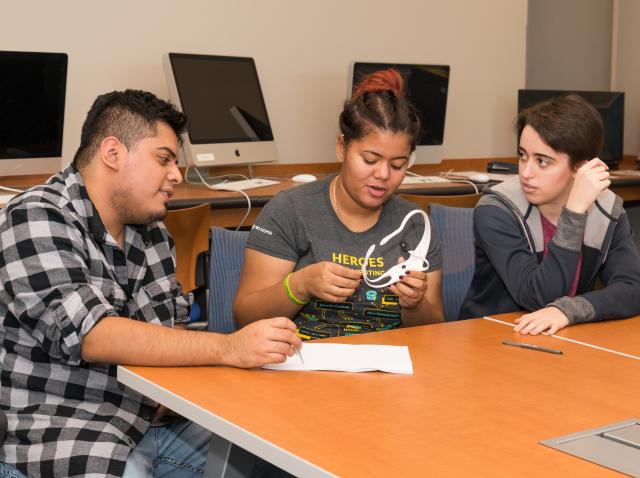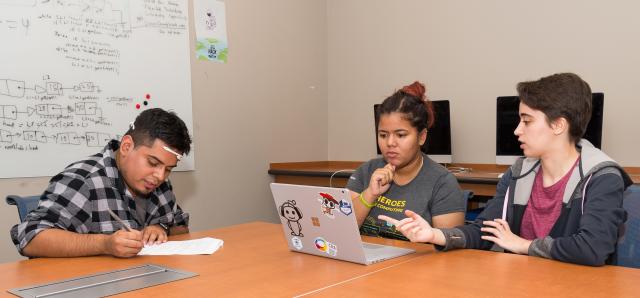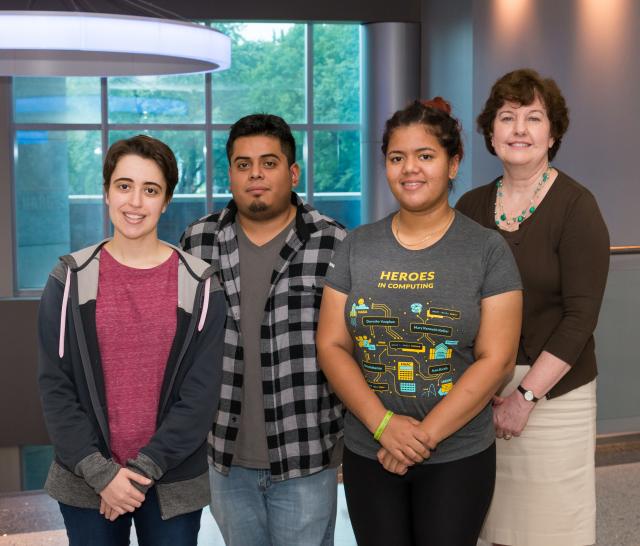Studying Brain Reactions to Improve Cybersecurity

Kean students Manuel Condado, Kingberli Capellan and Isabel Morais examine the BCI headgear being used in their research on cybersecurity.
Three Kean computer science students are studying the brains of high schoolers to determine the best way to teach cybersecurity awareness.
Using Brain-Computer Interface (BCI) technology, Kingberli Capellan, Isabel Morais and Manuel Condado — all seniors — will record the brain activity of high school students as they answer questions such as, “Do you think you are safe on the web?” and, “What are the risks associated with using public Wi-Fi?”
“We noticed that big-tech companies like Facebook and Instagram were being hacked, so we targeted the demographics of high school students because they need to learn cybersecurity awareness,” Condado said.

The ninth and 10th graders participating through Kean’s Project Adelante, a pre-college program for Latino high school students, will wear special noninvasive headgear as they respond to the confidential questions about internet use, cyber threats and personal practices. Information is transmitted to a computer, where their brain activity is then categorized.
“There are a lot of interesting things that go along with using BCI,” Morais said. “When the user is categorized as stressed or focused, we can see that, and we can figure out how we can use that information to help them better understand the concepts being taught.”

The students received a $10,500 grant from the highly selective Computing Research Association Collaborative Research Experience for Undergraduates (CRA-CREU) program to conduct the research. They are working with Patricia Morreale, Ph.D., executive director of the School of Computer Science.
“We have always taught students about stranger danger, but we are going to see a lot more cybersecurity awareness in the curriculum,” Morreale said. “We want them to know how easy it is to be phished, hacked or be vulnerable. By having lessons that they are interested in, we hope to increase the overall cybersecurity awareness of young students.”
The students will collect data over 10 weeks this semester and start analyzing the data in the Spring 2019 semester.
“I think this research is a great start for grad school because I want to go into the field of cybersecurity,” said Capellan, who is applying now for master’s programs in computer science.
They will publish and share their findings at conferences and Kean’s Research Days.